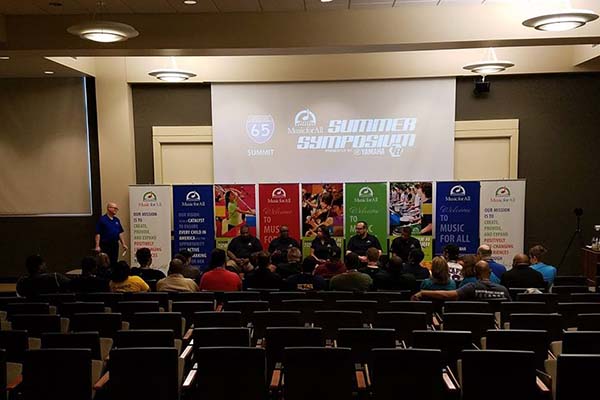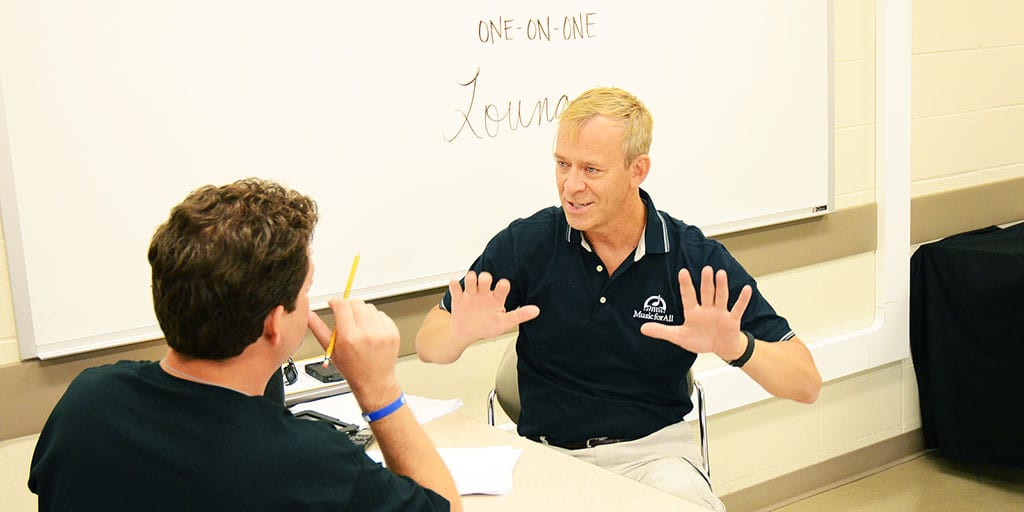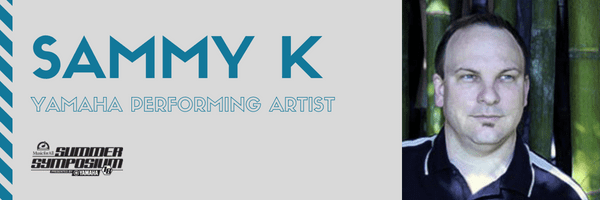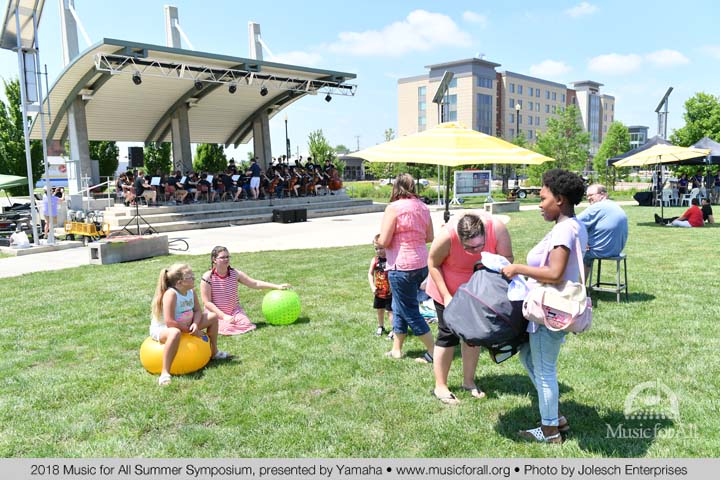Interstate 65 bisects the Midwest. It runs south from the steel town of Gary, Indiana; through Lafayette, and into Indianapolis, home of Music for All. From there, I-65 stretches south toward the Gulf of Mexico, through Louisville, Kentucky; Nashville, Tennessee; and through Huntsville, Birmingham, Montgomery, and Mobile, Alabama.
The I-65 Corridor Project, made possible by a grant from the County Music Association Foundation, aims to provide guidance and ongoing professional development to urban music education programs. Our ultimate goal is to help build self-sustaining music programs in these communities.
Today’s I-65 Corridor Summit Address brought together members of our Urban Education Advisory Committee:
- William J. Earvin, Baker HS, Director of Bands – Baker, LA
- Zachary Harris, William-Carey University, Assistant Professor of Music Education – Hattiesburg, MS
- Sybil James, Willowridge HS, Director of Bands – Houston, TX
- Tim Linley, Dallas Independent School District, Director of Visual & Performing Arts – Dallas, TX
- Ayatey Shabazz, Devmusic Publishing Company, LLC, Founder/President & CEO – Biloxi, MS
Fortunately, the session was recorded. But until it’s released, here are ten incredible takeaways from today’s conversation:
- Have a “team player” philosophy.
There are four groups of stakeholders in each music program: the administration, parents, other teachers, and students. Take every opportunity to reach out to these groups and find a way to make yourself indispensible to them. Build relationships across each group, and spread positivity wherever you can.
- Play the long game.
Think about where you want your program to be in five years. It doesn’t have to be too lofty a goal; one participant mentioned that she’d like enough school-owned instruments for every student who needed one. Now work backwards from that goal. What would be a reasonable step in that direction at the 3-year mark? The one-year mark? This will help you ensure that over the next few years, you invest your (limited) energy in your goals.
- Sell your program to your community.
Concentrate efforts on showcasing your successes. A lot of great things are happening in your classroom, so make sure everyone knows about them! “Sculpt” interactions with your program. For example, you might invite an administrator to attend a performance. Make sure she experiences the best you have to offer by having a parent meet her at the door, and show her to her seat, surrounded by other positive, enthusiastic parents. You never know when a positive experience might result in an extra few hundred dollars in your budget!
- Be a hustler. Just ask!
Create fundraisers that promote—and don’t undercut—your local businesses, like a coupon card. Apply for grants. Consider creating a Donors Choose project. Need instruments? Reach out to the community and ask them to donate the horns in their attics. One director found herself in need of French horn players. During morning announcements, she asked students who used to play in middle school to report to the band room. Four students showed up and rejoined band!
- Make your administration look good.
There are so many things that the music department does that makes the school run better. School funding is determined in part by attendance, so show off your students’ attendance statistics. That will prove you’re MAKING the school money! Share your students’ average ACT and SAT scores. Be prepared to present your administration with a win-win solution to problems.
- Break down the walls.
There’s a tendency for band, choir, and orchestra to stay in their own silos. Consider instead banding together across the fine arts department. One participant shared that her school does a fine arts festival during the school day on a modified schedule. Ensembles play for the student body, art students exhibit their work, drama students present skits, and departments present joint performances. Think about the bargaining power you’d have with your administration if half the student body is involved in the arts!
- Be ready for anything.
One participant shared that her administration had a high rate of turnover. You have to be prepared to work with anyone who is a stakeholder in your program. You’d be surprised how much good will you can buy with an occasional cup of coffee for your principal or a soda for your guidance counselor.
- Be an artist.
Teach your students artistry from the very beginning. Be a “teacher/artist.” Let your kids hear you perform. Post your practice log right alongside your students’, so they can see what it looks like to be a lifelong performer.
- Empower your students with responsibility to your program.
You don’t have to be the only one who does recruiting! Let your students talk to their friends about joining. One participant needed more mallet keyboard players in the front ensemble, so he asked his students if they knew anyone who played piano. Of course they did. Before long, he had six new students!
- Use the system to your advantage.
Instead of fighting the system, figure out a way to make the system work for your students. As you work to make yourself indispensible, look for an opportunity to join the curriculum development team. Work closely with your counselors. Get them your information early, and offer to help them develop a master schedule that works for your students—and everyone else. While you’re at it, make it a curricular requirement for each student to have an instrument. Your administration won’t be able to drop extra students in your class without providing an instrument for them. After all, they wouldn’t send kid to science class without providing enough lab equipment; so why should they send kids to band or orchestra without an instrument?
Though geared toward urban music educators with fewer resources, the entire session was packed with practical tips that any educator can put to use right away. The participants’ experiences were varied, so directors came away with a variety of suggestions to choose from. Ultimately, as William Earvin said, “Advocacy is our greatest weapon.”
While still in its infancy, the I-65 Corridor Project is already having powerful effects on the participants, both directors and students. We can’t wait to watch it grow!






